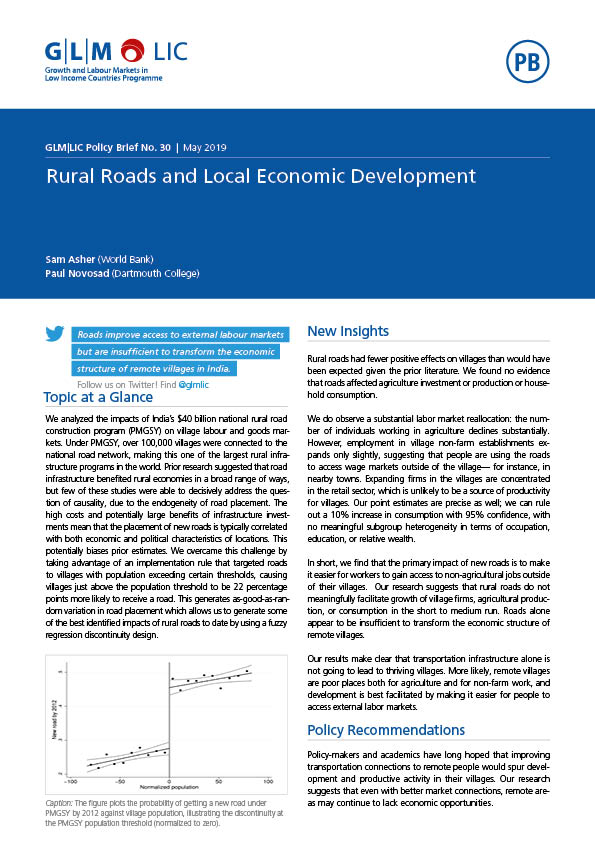We analyzed the impacts of India’s $40 billion national rural road construction program (PMGSY) on village labour and goods markets. Under PMGSY, over 100,000 villages were connected to the national road network, making this one of the largest rural infrastructure programs in the world. Prior research suggested that road infrastructure benefited rural economies in a broad range of ways, but few of these studies were able to decisively address the question of causality, due to the endogeneity of road placement. The high costs and potentially large benefits of infrastructure investments mean that the placement of new roads is typically correlated with both economic and political characteristics of locations. This potentially biases prior estimates. We overcame this challenge by taking advantage of an implementation rule that targeted roads to villages with population exceeding certain thresholds, causing villages just above the population threshold to be 22 percentage points more likely to receive a road. This generates as-good-as-random variation in road placement which allows us to generate some of the best identified impacts of rural roads to date by using a fuzzy regression discontinuity design.
